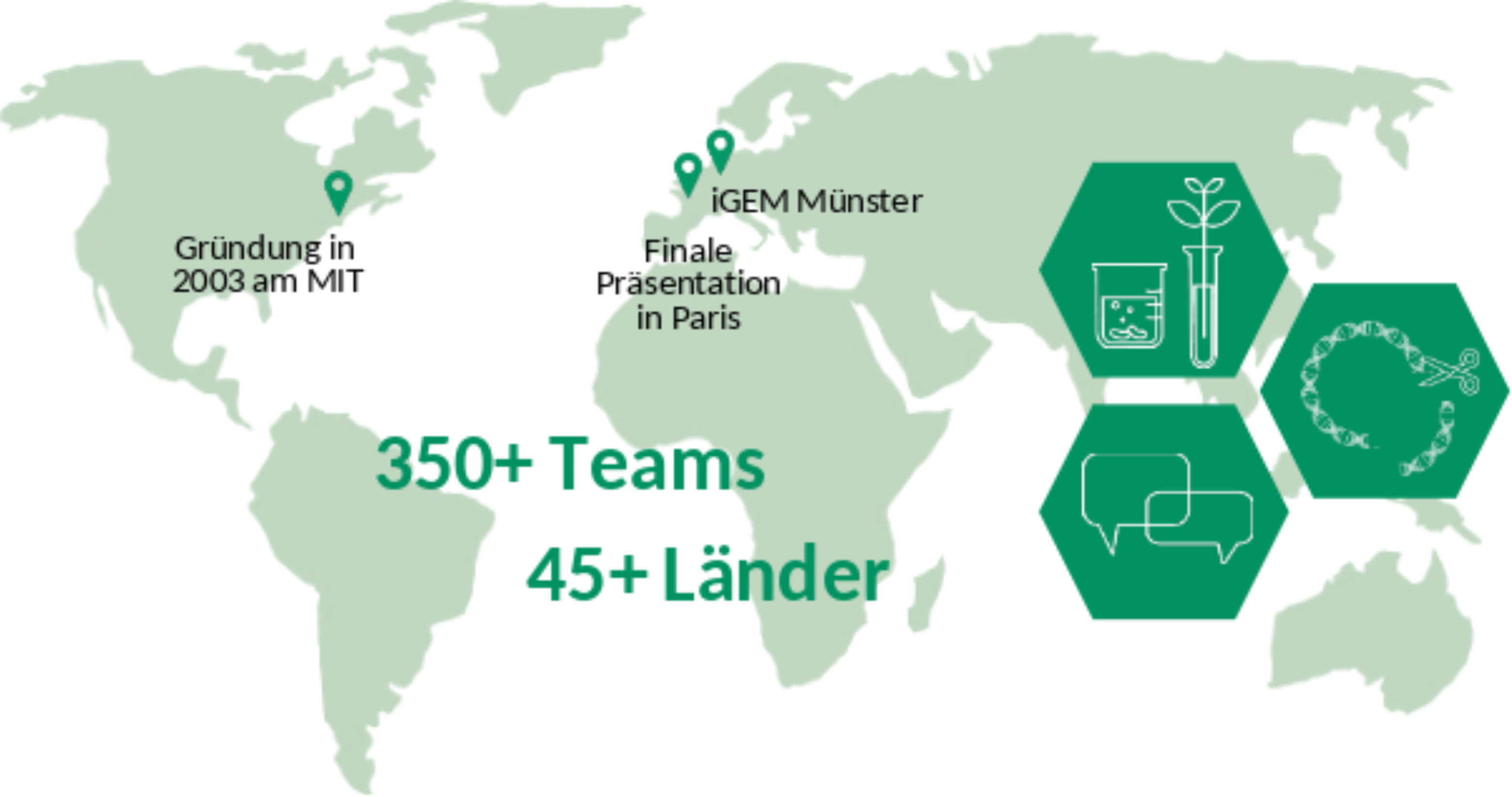Synthetic biology is an emerging branch of research and industry that combines the disciplines of biology with engineering and information technology approaches and methods. The goal of synthetic biology, even more than in biotechnology, is to develop the biological system as a new technology and make it usable. Based on this idea, the first iGEM competition (international genetically engineered machine competition) was held in 2004 by the Massachusetts Institute of Technology. Over the years, this competition has become the most prestigious of its kind, with more than 350 participating teams from over 40 countries and a total of over 7000 participants in 2021.
In this competition, teams of students develop solutions to socially relevant problems by using the possibilities of synthetic biology. The projects range from the development of new diagnostic or therapeutic approaches, to ideas for environmental remediation and protection, to applications in the fields of food or industrial processes.
In addition to the teams' research on their respective projects, the social context and the involvement of the public ("human practices") is also an important point of the iGEM philosophy. In this way, not only knowledge and skills in the field of laboratory work are developed, but also competences in biosafety, ethics, responsibility in science, science communication and public relations.
 © iGEM Münster 2023
© iGEM Münster 2023

